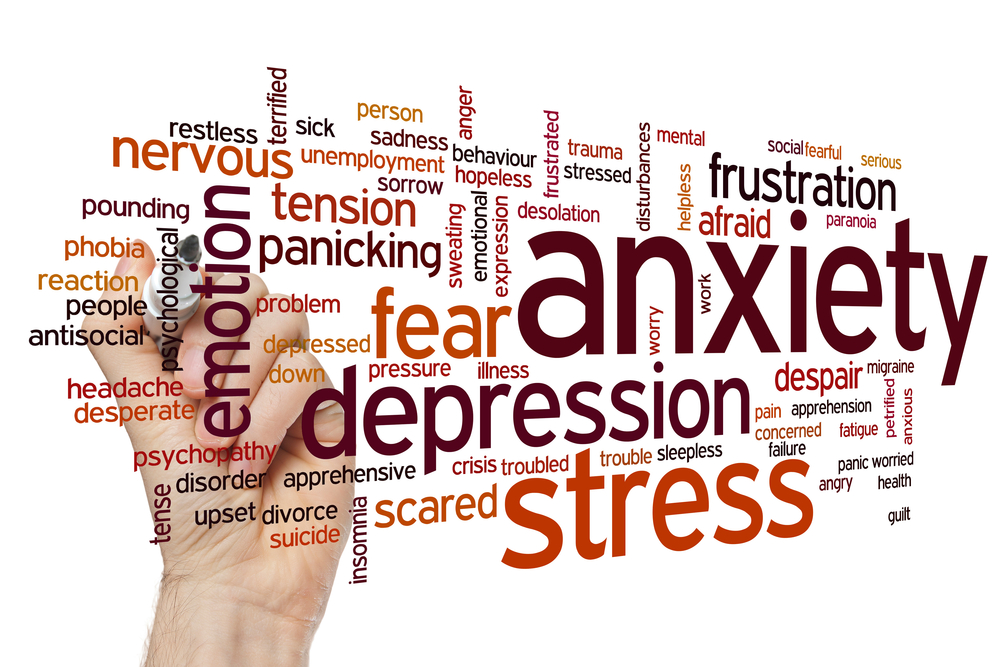All You Need To Know About Mental Disorders

Mental disorders are common and widespread, but their existence is rarely accepted or acknowledged by the average person. In fact, most of us do not understand what mental illness is. A survey revealed that around 47% of the people associate mental illness with mental retardation while 25% assume that people suffering from mental illnesses are prone to violence. So, there is no proper understanding of mental illnesses.
Let’s understand mental disorders in greater detail.
What are mental disorders or illnesses?
A mental disorder is an illness that disturbs your thoughts or behaviour to the extent that it affects your ability to perform daily activities.
What causes mental disorders?
The primary cause of mental disorders is believed to be stress that can occur due to a particular situation or a series of events. Mental disorders may also occur due to certain genetic factors that may be passed on in the family, traumatic events, imbalance of body biochemicals, environmental factors like substance abuse, or a combination of any of these.
What are the types of mental disorders?
Mental disorders are classified into more than 200 types. The most common ones include:
- Depression
- Anxiety and Panic Disorders
- Bipolar Disorder
- Attention-Deficit/Hyperactivity Disorder (ADHD)
- Obsessive-Compulsive Disorder (OCD)
- Dementia
- Post-Traumatic Stress Disorder (PTSD)
- Schizophrenia
What are the common symptoms associated with mental disorders?
It is essential for everyone to understand the signs and symptoms of mental disorders. It can help recognise the need to help your loved ones who might be suffering from a mental illness.
The most recognisable symptoms of mental disorders include:
- A continued feeling of sadness or uselessness for more than two weeks
- Never-ending worries or fears related to anything
- A sudden onset of intense anger or panic
- Unexplained body signs like continued headache, chronic restlessness, lack of energy, frequent flashbacks or nightmares, extreme weight loss or gain, excessive sleeping or complete insomnia, etc.
One of the most telling symptoms of mental disorder is avoiding friends and family. So, if anyone you know displays the above signs and symptoms, make it a point to consult a physician for further evaluation.
How are mental disorders diagnosed?
A thorough evaluation is required to diagnose a mental disorder. It starts with a physical examination, followed by some lab tests. A psychological evaluation is also carried out, in which a psychologist notes your detailed history and asks questions related to your problems, thoughts, and feelings. A questionnaire may also be given to you to extract more information about your illness. Some more diagnostic tests or scans may be required to conclude the diagnosis and identify the precise type of mental disorder.
How are mental disorders treated?
Treatment depends on the type of illness, its cause, and severity. In most cases, a combination of several forms of treatment is recommended for best results. It includes medications such as antidepressants, anti-anxiety drugs, mood stabiliser drugs, or antipsychotic drugs.
Additionally, psychotherapy is also recommended. This involves a discussion with a psychotherapist so that your problem is analysed properly, and suitable solutions are suggested. In cases where medication or psychotherapy does not produce desired results, brain-stimulation treatments such as electroconvulsive therapy, deep brain stimulation, or transcranial magnetic stimulation may be given. In cases of severe mental illnesses, hospitalisation may also be required.
A WHO report says that India is the most depressed country in the world, with one out of five Indians suffering from a mental illness. Like other illnesses, mental disorders too need proper treatment as early as possible to prevent any complication. So, stay alert and take action at the earliest!














